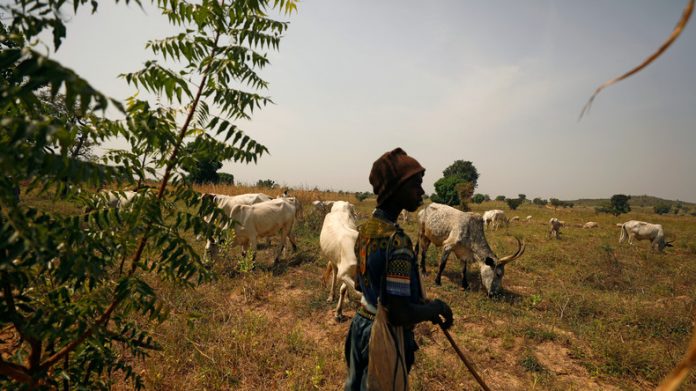West Africa fears a serious crisis if European dairy manufacturers pour into Africa their surplus milk powder formed during the Covid-19 crisis, while livestock farming in the Sahel is already weakened by the persistence of jihadist violence and global warming.
Like all NGOs that defend Sahelian breeders, the West African peasant organization Apess says it is “worried” about Brussels’ decisions to “subsidize” the storage of milk powder for European dairy manufacturers. This decision is intended to relieve breeders in the Old Continent after the fall in milk prices caused by the closure of places of consumption like restaurants and canteens at the precise moment when the spring overproduction in milk exploded.
“We fear that this milk will be destocked in West Africa” at dumping prices in the form of re-fattened skimmed milk powders, said Hindatou Amadou, spokesperson for Apess and coordinator of the West African campaign “My milk is local”, at a recent round table on the subject.
At the beginning of May, a dozen peasant and solidarity associations, including Oxfam or CCFD Terre solidaire, had already warned of a risk of a “serious crisis”, when West Africa would like to bet in particular on the livestock to support employment, fight against undernourishment, contain emigration and ultimately fight against violence.
Destabilized local breeders
In 2015, European skim milk powders, re-fattened with vegetable fats, were 54% distributed in sub-Saharan Africa, confirms a publication by the European Commission.
The practice developed in 2017-2018, thanks to the surge in butter prices on world markets. “With the milk fats, a certain number of manufacturers produced butter which they sold at very good prices, and the skimmed-milk powder which remained was then fattened with palm oil and sold in countries emerging at prices lower than their local milk”, explains AFP a French industrial source who requires anonymity.
Under the guise of helping developing countries to feed their populations at affordable prices, European dairy manufacturers therefore participate in this vast trade which strongly destabilizes local breeders, confirms this source.
First in rank are Irish groups (22%) of sales of fattening milk powders made in Africa in 2015, according to the European GIRA report of 2017, then Dutch (15%), Belgian (10%), Polish (5%) , German (4%) and French (4%). The volumes involved are difficult to quantify precisely, as these products are not identified by customs.
Supporting Sahelian producers
Under the influence of NGOs, a customs code allowing them to be traced has just been created since January 1 (NC 1901 90 95). “Overall, these imports still have a huge influence”, said Gilles Vias, of the NGO Vétérinaires sans frontières. “In industrial milk processing units in West Africa, we are 5% local milk and 95% imported milk [in powder form] processed into dairy products“, he said.
He is asking either for an increase in customs duties, currently 5%, or for a “tap” policy, which would make it possible to stop imports when local milk is available, in particular in micro-dairies in the Sahel which depend on non-herds. sedentary, very fragile.
The subject is all the more important since the countries of the Sahel are very large consumers of milk, but also producers thanks to their extensive and transhumant herds. Mali, Niger and Mauritania thus produce 76% of local milk from West Africa, according to Vias.
Interested, some European industrialists are just starting to react by supporting local production. Arla Foods (Denmark) has entered into a partnership with the Nigerian Ministry of Agriculture. The Dutch cooperative Friesland Campina has also invested in the development of milk drinks from local milk. Amundi, the investment fund of the French Danone, increased its investments in May in “laiterie du berger”, which collects milk from Fulani breeders in northern Senegal, to “strengthen milk collection” and “distribution and the sale in Senegal”.
Reference: https://www.politico.eu/article/eus-milk-scramble-for-africa/































